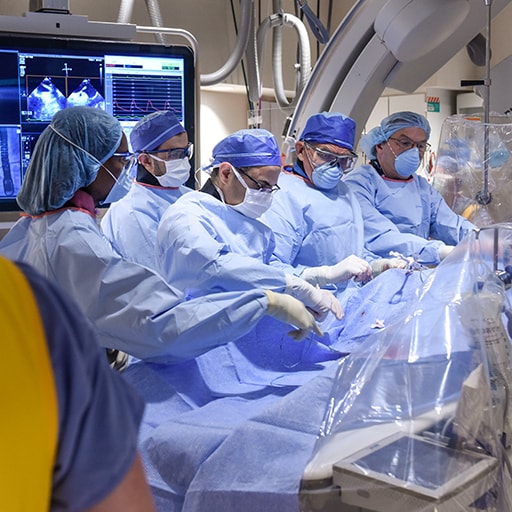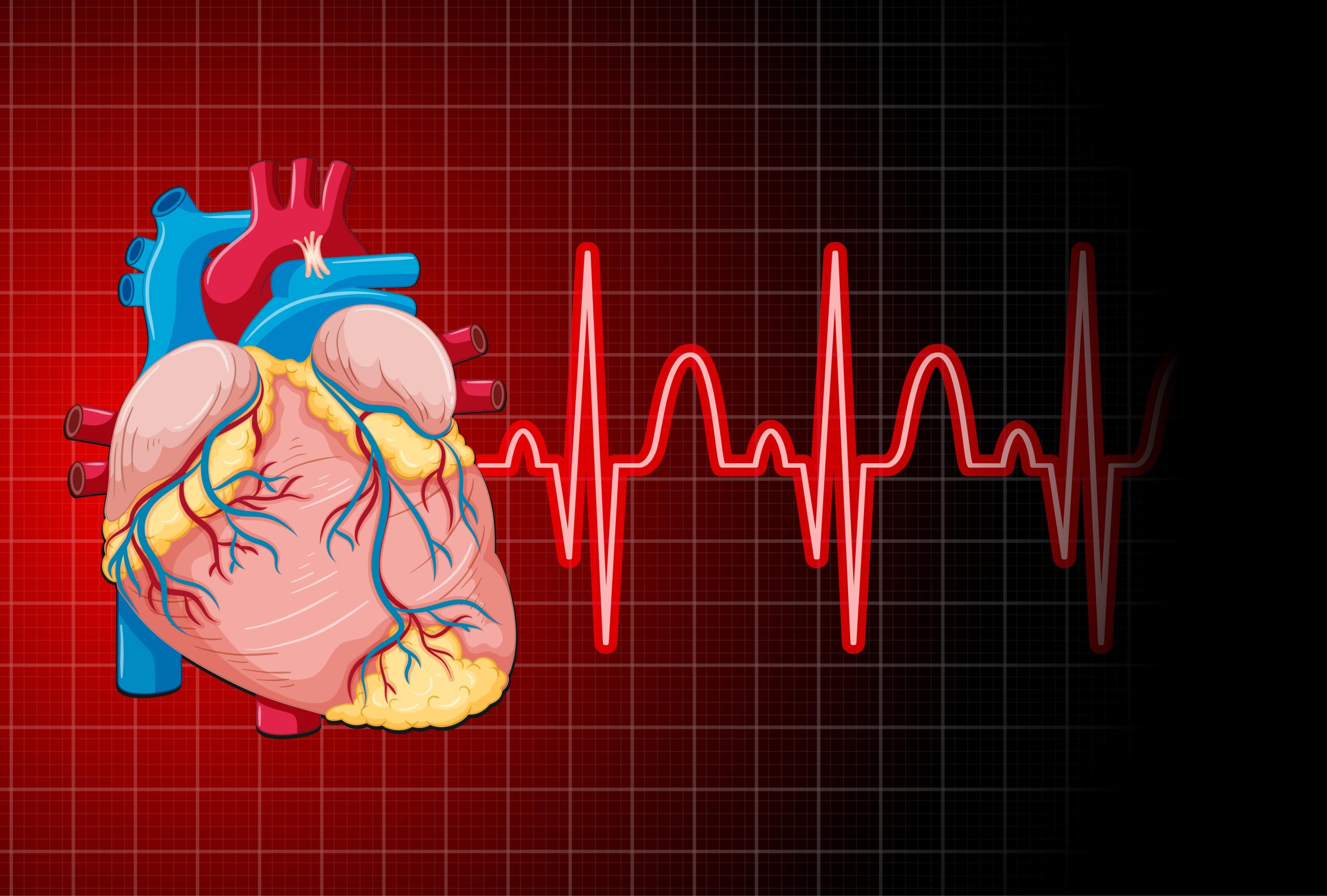Comprehending the Relevance of Cardiology in Modern Healthcare Solutions
Cardiology plays a crucial duty in contemporary health care, particularly as heart problem remains to be the leading root cause of death worldwide. Advances in diagnostics and therapy have actually changed patient treatment, enabling earlier treatments and improved results. The change in the direction of preventative cardiology empowers individuals to manage their health and wellness proactively. As innovation remains to advance, the integration of cutting-edge services might further redefine cardiology's influence on public health and wellness, motivating a closer exam of emerging fads and their ramifications.
The Occurrence of Heart Problem and Its Effect On Public Health
Although cardiovascular disease remains the leading reason of death globally, its impact extends much past specific people to influence public health systems and economic climates. The high prevalence of cardiovascular disease places a substantial stress on medical care resources, requiring raised funding for therapy, recovery, and prevention programs. Public health campaigns should attend to threat elements such as weight problems, cigarette smoking, and inactive lifestyles, which add substantially to the rising incidence of heart conditions.Moreover, the economic burden linked with heart illness is enormous, incorporating not only direct medical expenses but also indirect expenses connected to lost productivity and early mortality. Neighborhoods encounter challenges in taking care of these prices, usually leading to differences in healthcare accessibility and outcomes. As the populace ages and lifestyle-related risks proceed to rise, the seriousness for reliable cardiology treatments comes to be critical. Dealing with heart illness is not just an issue of specific health however likewise a vital public wellness priority.
Developments in Heart Diagnostics and Imaging Techniques
Recent advancements in cardiac diagnostics and imaging techniques have actually transformed the field of cardiology, boosting the capacity to keep track of and identify cardiovascular disease. Methods such as cardiac MRI, CT angiography, and echocardiography have ended up being increasingly innovative, giving in-depth images of cardiac frameworks and functions. These methods enable the very early recognition of conditions like coronary artery disease, cardiac arrest, and valvular disorders.Moreover, advancements in non-invasive diagnostics, such as wearable modern technology and remote surveillance tools, have equipped clients and doctor. These devices help with real-time tracking of heart rhythms and other important indications, causing prompt interventions. Furthermore, expert system is being incorporated right into imaging analysis, boosting precision and efficiency in medical diagnosis.
Technologies in Therapy Options for Heart Issues
Current improvements in cardiology have led to significant innovations in treatment alternatives for heart disease. These consist of advanced medical strategies that improve procedural end results and arising medications that provide new avenues for treatment. As the area evolves, these technologies play an essential role in improving person care and end results.
Advanced Surgical Techniques
Innovations in medical strategies have actually transformed the landscape of cardiology, providing brand-new expect patients with heart disease. Minimally intrusive procedures, such as catheter-based interventions, have greatly reduced recuperation times and health center remains. Methods like robotic-assisted surgical procedure enhance accuracy, allowing cosmetic surgeons to browse complex anatomical structures with greater precision. Developments in imaging modern technology help with real-time visualization during procedures, boosting results. Transcatheter aortic valve substitute (TAVR) exemplifies a development in dealing with aortic constriction, enabling shutoff substitute without open-heart surgery. Furthermore, hybrid approaches that incorporate surgical and catheter-based techniques offer tailored solutions for different cardiac issues. These innovative medical methods not just enhance individual security yet also increase therapy choices, underscoring the important duty of development in contemporary cardiology techniques.
Emerging Medicines and Treatments
As the landscape of cardiology proceeds to evolve, emerging medications and therapies play a crucial role in improving treatment choices for heart problems. Innovations such as unique anticoagulants and advanced lipid-lowering agents have changed the monitoring of cardiovascular conditions, significantly lowering individual morbidity and death. Furthermore, the advancement of genetics therapies and regenerative medication uses promising avenues for treating conditions previously regarded irreparable. Medical tests are constantly exposing the effectiveness of these therapies, pressing the boundaries of traditional treatments. The integration of digital health modern technologies promotes personalized medication, allowing for tailored treatment plans based on hereditary and way of living elements. Collectively, these developments emphasize the vibrant nature of cardiology, improving person results and redefining criteria of care in modern health care.
The Function of Preventive Cardiology in Person Treatment
Preventative cardiology plays an essential duty in person care by concentrating on the recognition of risk aspects that add to heart problem. With lifestyle alteration techniques and early detection techniques, doctor can effectively decrease the incidence of cardio occasions - Dr Garcia. This proactive technique not just improves client outcomes however likewise promotes long-lasting wellness
Threat Factor Recognition
While cardio illness continue to be a leading reason for morbidity and mortality worldwide, effective danger aspect identification works as a keystone of preventative cardiology. Identifying danger factors such as hypertension, hyperlipidemia, household, and diabetes history is important for very early treatment. Health care specialists make use of different screening techniques to assess these factors, enabling tailored safety nets. Additionally, comprehending a patient's way of life options, such as smoking and physical inactivity, further educates threat evaluations. This thorough examination makes it possible for clinicians to develop individualized treatment plans focused on mitigating risks. By focusing on threat aspect identification, health care systems can enhance person end results and decrease the overall concern of heart diseases, eventually adding to enhanced public health and wellness techniques and resource allowance.
Way Of Living Alteration Methods
A wide variety of researches highlights the vital duty of way of living adjustment techniques in lowering cardiovascular disease danger. These approaches encompass dietary adjustments, enhanced physical activity, smoking cessation, and weight administration. By adopting a heart-healthy diet regimen rich in fruits, veggies, whole grains, and lean healthy proteins, people can reduce cholesterol degrees and blood pressure. Normal physical task enhances the heart and improves general cardiovascular health and wellness. In addition, giving up smoking cigarettes greatly minimizes the risk of cardiovascular disease and enhances recuperation rates for those with status quo. Weight management even more adds to cardio health by reducing other danger aspects such as diabetes mellitus and hypertension. Executing these lifestyle alters not only advertises specific health but also works as a cornerstone of preventive cardiology in patient treatment.
Early Detection Strategies
Way of life adjustments considerably add to decreasing cardio disease dangers, but they are most efficient when matched with early detection methods. Precautionary cardiology emphasizes the relevance of recognizing potential heart problems before they rise into significant conditions. Techniques such as high internet blood pressure surveillance, cholesterol screening, and advanced imaging innovations like echocardiograms play vital functions in reviewing cardio health. Biomarkers and hereditary screening likewise boost the precision of early discovery, enabling for customized preventive techniques. Normal heart risk visit site assessments equip doctor to step in proactively, possibly stopping heart attacks and strokes (Cardiology care). By incorporating these very early discovery approaches right into routine treatment, individuals can take advantage of timely way of life interventions and targeted therapies, inevitably boosting outcomes and enhancing lifestyle
Integrating Technology Into Cardiology Practices
As improvements in technology continue to reshape various fields, the combination of innovative devices and systems into cardiology methods has become essential for boosting individual care and outcomes. Telemedicine platforms permit cardiologists to keep an eye on individuals from another location, boosting accessibility to care while reducing the concern on health care centers. Wearable tools, such as smartwatches, enable constant heart rate monitoring, notifying both physicians and clients to prospective concerns in real-time. In addition, fabricated knowledge (AI) is being used to assess substantial quantities of heart information, helping in early diagnosis and personalized treatment strategies. Advanced imaging strategies, consisting of 3D echocardiography, improve visualization of heart structures, resulting in a lot more specific treatments. Electronic health and wellness records (EHRs) enhance person info monitoring, making sure that cardiologists have instant access to critical information. With each other, these technological innovations are transforming cardiology, promoting positive monitoring and improved health and wellness end results for individuals with cardio conditions.
The Relevance of Client Education And Learning and Involvement
Patient education and interaction play a critical role in the administration of cardiovascular health and wellness. By equipping patients with knowledge about their conditions, treatment choices, and lifestyle changes, medical care companies empower individuals to take an active duty in their treatment. This positive technique can result in boosted adherence to recommended medications, nutritional modifications, and exercise regimens, eventually decreasing the risk of complications.Engagement likewise promotes a strong patient-provider relationship, motivating open interaction and depend on. When clients feel notified and entailed, they are more probable to voice problems and ask inquiries, which can bring about much better professional outcomes. Additionally, instructional resources, such as workshops or digital platforms, can enhance understanding and advertise self-management techniques. Generally, prioritizing individual education and learning and involvement is vital for enhancing cardiovascular health, boosting quality of life, and minimizing healthcare expenses related to heart diseases.
Future Fads in Cardiology and Their Prospective Influence

Frequently Asked Inquiries
What Way Of Living Adjustments Can Decrease Cardiovascular Disease Risk?
The existing concern addresses lifestyle modifications that can substantially minimize cardiovascular disease threat. Dr Garcia. Taking on a well balanced diet, taking part in normal exercise, preserving a healthy and balanced weight, taking care of stress and anxiety, and avoiding tobacco can significantly improve cardio wellness
How Can I Acknowledge Early Indications of Heart Troubles?
Recognizing early indications of heart troubles includes tracking symptoms such as upper body pain, shortness of breath, fatigue, and irregular heart beat. Prompt recognition of these indicators can prompt needed clinical examination and treatment for far better outcomes.
What Are the Distinctions Between Cardiologists and Heart Surgeons?
The distinctions in between cardiologists and cardiac cosmetic surgeons exist in their duties; cardiologists largely diagnose and handle heart disease via non-invasive approaches, while heart doctors carry out procedures to correct architectural heart issues. Each plays a vital, distinctive function.

Exactly how Typically Should I Get My Heart Wellness Checked?
The regularity of heart checkup differs based upon individual danger variables. Usually, grownups must undertake evaluations each to two years, while those with status quo might need even more regular evaluations as recommended by healthcare specialists.
What Function Does Genes Play in Heart Disease Risk?
Genetics significantly affects cardiovascular disease danger, with domestic patterns suggesting acquired conditions. Details genes can incline individuals to high blood pressure, cholesterol issues, and other cardio troubles, highlighting the significance of hereditary screening in reviewing heart health. Heart condition remains the leading reason of fatality worldwide, its effect extends far past private patients to influence public wellness systems and economies. Public health campaigns should resolve risk variables such as weight problems, smoking cigarettes, and less active lifestyles, which contribute considerably to the increasing occurrence of heart conditions.Moreover, the economic worry connected with heart condition is enormous, including not just straight medical prices but likewise indirect expenditures related to lost efficiency and early mortality. Preventive cardiology plays a crucial function in individual care by focusing on the identification of danger factors that add to heart illness. Fabricated knowledge (AI) and device understanding are improving diagnostics and person tracking, enabling very early detection of heart illness. The distinctions between cardiologists and heart surgeons exist in their roles; cardiologists largely identify and handle heart conditions through non-invasive techniques, while cardiac surgeons execute medical treatments to deal with architectural heart concerns.